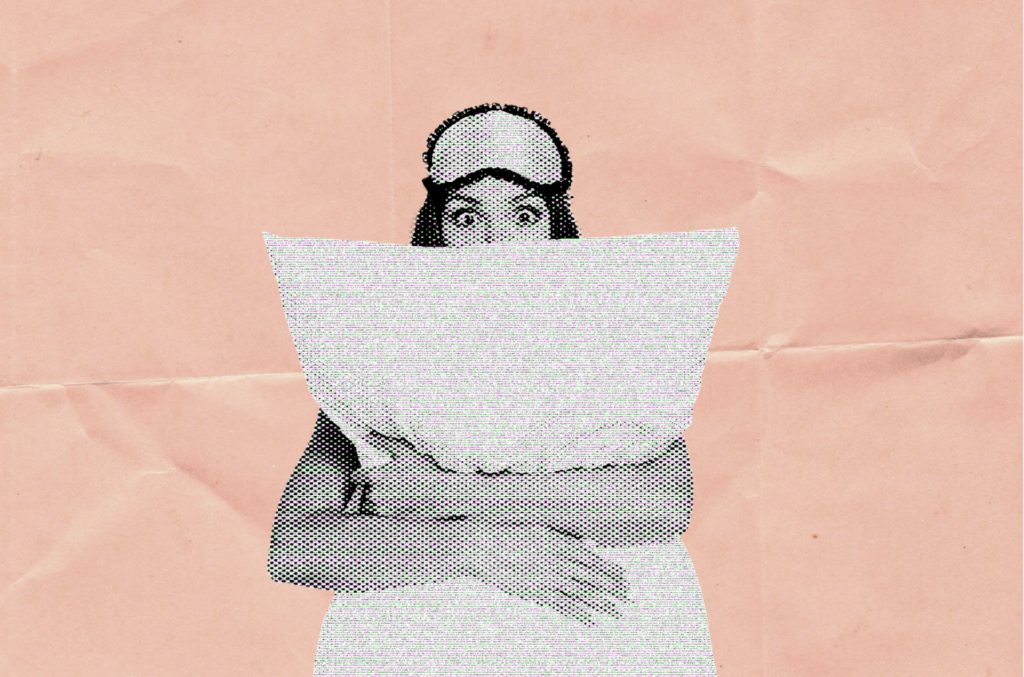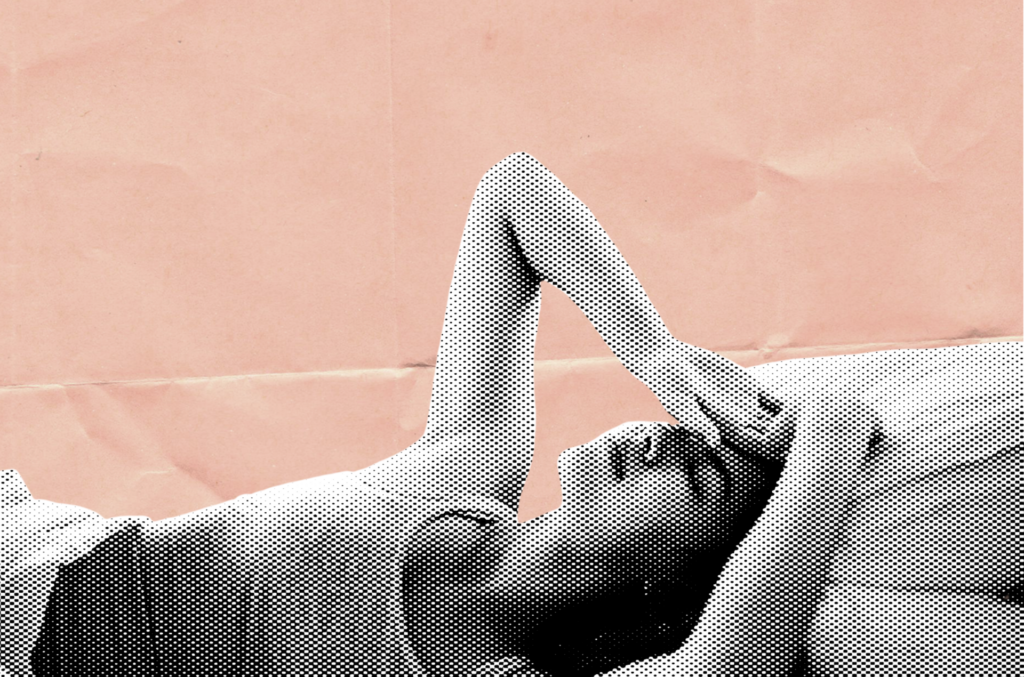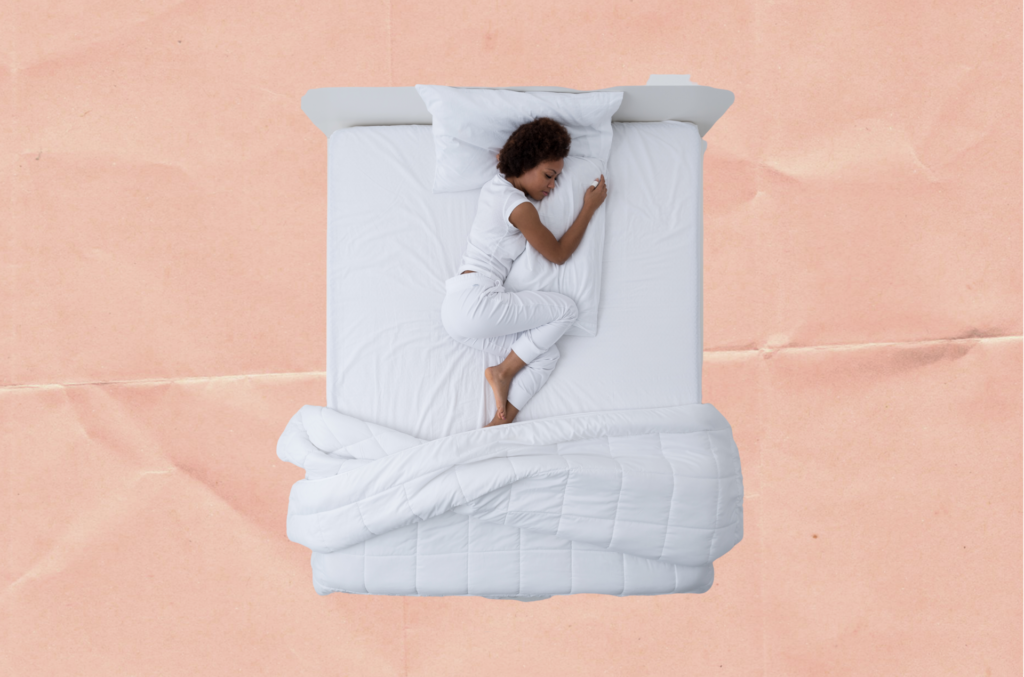
And the IDEAL ways to remedy them.
Yep, we know what you’re thinking; that title might seem a little superfluous. After all, you know if you’ve had a restless night’s sleep. You’re yawning. You’re exhausted. Your eyes are drooping, red, or both. It’s easily recognisable and hard to ignore.
But we’re not here to talk about those external signs. Rather, we’re here to look at the signs you’re a restless sleeper which occur when you’re actually in the land of nod, and the resultant issues which follow the next day.
While turning and tossing in bed is a normal part of the bedtime experience, restless sleeping is a little different, and can disrupt your everyday life. Once it becomes a chronic issue, you should start determining the possible reason and address the problem, particularly in case there’s an underlying condition involved which requires further medical attention.
With that in mind, here are the top 4 signs you’re a restless sleeper, and the IDEAL ways to remedy them.
AWKWARD MOVEMENTS AND NOISES DURING SLEEP
Kate Barrington @ BedAdvisor.com explains the importance of sleeping on the right mattress when dealing with restless sleep; ‘’a good bed reduces movements and promote restful sleep, most especially at night, preventing the attack or triggering of sleep disorders’’.
Movements, such as punching, kicking, jumping from bed, or arm flailing, occur in people with Rapid Eye Movement Sleep Behavior Disorder (RBD). These movements are responses to violent dreams, like defending oneself from an attack or being chased. What’s more, noises like laughing, talking, shouting, cursing, and emotional outcries are indicative of RBD, too.
A little more about REM Sleep Behavior Disorder (RBD):
- The exact cause of REM sleep behaviour disorder is unknown. It usually occurs in relation to different degenerative neurological conditions, including Parkinson’s disease, diffuse Lewy body dementia, multisystem atrophy or Shy-Drager syndrome.
- This sleep disorder can lead to injuries. As such, it’s important that you seek medical consultation with a sleep doctor if you suspect that you or a loved one has RBD.
- The medication treatment for REM sleep behaviour disorder includes melatonin or clonazepam.

BREATHING PROBLEMS DURING SLEEP
Loud snoring, frequent gasp-like breathing interruptions, and any abnormal breathing throughout the night are indicative of Obstructive Sleep Apnea (OSA).
Other signs of obstructive sleep apnea include, drowsiness during the day and waking up with a sore throat, a headache, or dry mouth. Untreated OSA may lead to diabetes, heart trouble, and restless sleep.
Investing in the right bed could reduce abnormal breathing problems during sleep or restless sleep, as well as sleeping with your head slightly raised at night.
Sleep doctors highly recommend lifestyle changes, like exercising more frequently, losing weight and cutting back on the cigarettes and alcohol (sorry Liam). A sleep mask may also be prescribed to keep the airways open during the night.
UNCOMFORTABLE SENSATIONS
If you keep moving your legs at night because of uncomfortable sensations, you’re likely suffering from Restless Leg Syndrome (RLS) or Willis-Ekbom disease. The possible causes of this sleep disorder include iron deficiency or low levels of iron in the blood, uremia, blood in the urine due to worsening kidney function, fibromyalgia, hypothyroidism, and diabetes.
Sufferers often describe the uncomfortable sensations as like a creeping, crawling, burning, tugging, itching, pulling, throbbing, or gnawing feeling, wherein the person experiences a strong urge to move.
These uncomfortable sensations may occur when sitting for prolonged periods of time, like while at the cinema, while driving, or when you’re lying down in bed, which makes falling asleep difficult. Most often than not, patients want to shake their arms or legs and walk around to relieve these sensations.
Treatment options for RLS include:
- Leg massage
- Ice packs or heat pads
- Putting pressure on foot muscles using a foot wrap
- Iron supplementation
- Prescribe medications, such as benzodiazepines, anti-seizure drugs, and dopaminergic agents.

DAYTIME SLEEPINESS
Since you lack sleep at night or are experiencing sleep deprivation, daytime sleepiness is a sign that you’re a restless sleeper. It occurs when you get less sleep than you need to feel alert and awake. Sleep deprivation leads to obesity, poor job performance, emotional difficulties, and a general lower quality of life.
Don’t just brush this thing off as ‘tiredness’ and move on. Sleep deprivation can be a manifestation of undiagnosed medical problems or sleep disorders. It alters normal functioning, disrupting a person’s ability to focus and even raising the chance of accidents.
Young adults and children are the most vulnerable groups to sleep deprivation’s negative effects.
Here are the other symptoms of sleep deprivation caused by restless sleep:
- Moodiness
- Frequent yawning
- Irritability
- Clumsiness
- Easily get tired
- Depressed mood
- Inability to learn new concepts
- Increased carbohydrate cravings
- Difficulty focusing or concentrating
- Forgetfulness
- Lack of motivation
- Reduced sex drive
The remedy for sleep deprivation without an obvious medical cause should be all-encompassing a holistic. Make sure you’re enjoying a healthy, varied diet, and taking regular exercise. It’s also a smart move to take stock of your sleep hygiene; is your bedtime routine optimised, is your bedroom at a comfortable temperature, do you sleep in the appropriate clothes for a restful night of Zzzeds? All of these things make a huge difference.
THE BOTTOM LINE
Restless sleep can be caused by the presence of sleep disorders. While the exact cause of sleep disorders is unknown, they’re thought to be prompted by nutrient deficiency, neurological problems, or other medical conditions.
A restless sleeper experiences difficulty sleeping, breathing problems, uncomfortable sensations, and awkward movements while asleep. Also, sleep deprivation leads to restless sleep, which can compromise the immune system, causing the restless sleeper to develop chronic illness. Don’t just put your continued bad night’s sleep to the demands of modern day life. Instead, take back control and you might find yourself feeling more energetic, active and positive in no time.





